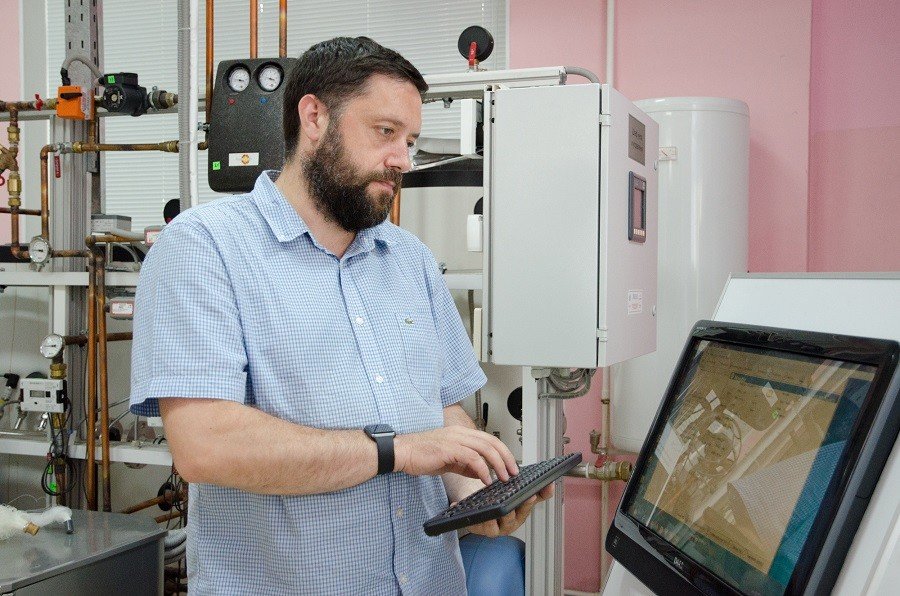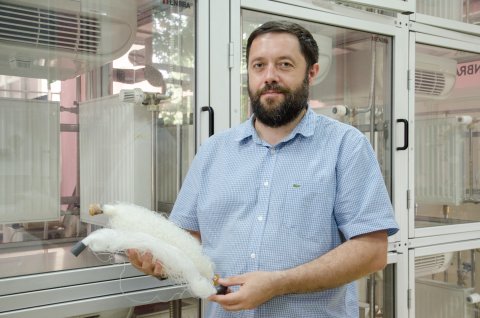The presence of hot water in a residential building and comfortable temperature in it are the primary needs of a man. However, today the breakages often occur in the system of heating or hot water supply. The new design solutions, as well as the use of new materials, allow preventing them.
Scientists of South Ural State University patented a heat exchange device with elements based on polymeric hollow fibers. It will simultaneously solve several problems in the heating and water supply system. Among them, there are such problems as large weights of parts which are made of metals, their susceptibility to corrosion and high production costs.
Heat in a House Will Be Generated Faster
“Urban water contains a large amount of dissolved minerals, which when heated, settle in a storage tank and on a heating exchanger, as well as oxygen dissolved in the water. In this regard, the storage tanks and heat exchangers in them are corroded and often do not stand the due life,” says Yury Bondarev, the author of the patent, Director of Center for Collective Use in Energy and Energy Efficiency of SUSU. “There is a need for additional processing of metals or in the use of materials with alloying properties that do not rust. In addition, heat exchangers from copper or stainless steel are expensive and heavy. Plastic is low in weight, and it is not subject to chemical corrosion. Therefore, the use of heat exchangers made of such a material seems appropriate for battery tanks. It was not used this way before.”
The design of the advanced storage device consists of 2 elements: it is a storage tank and a heat exchanger based on polymeric hollow fibers. Polymer fibers present a branched surface of heat exchange. In other words, it is a bundle of several hundred small plastic pipes, through which water flows. Fibers are made from various polymers, such as polypropylene, polycarbonate, polyamide, etc. The material, diameter, length, and a number of fibers can be selected depending on the specific application. The hollow fiber bundles are compact and have low weight, which greatly simplifies installation and maintenance. In addition, the heat transfer process is significantly accelerated.

Photo: Heat exchanger with elements based on polymeric hollow fibers
The development of individual elements and experiments were carried out in cooperation with Laboratory for Heat Exchange and Fluid Flows of Technical University of Brno (the Czech Republic) and Faculty of Mechanical Engineering and Technology of University of Applied Sciences Augsburg, (Germany). Now scientists are faced with the task of simplifying the process of manufacturing a heat exchange device for its mass production. It will allow providing the consumer with hot water and protecting the heating system from overheating. In addition, the heating system can react more quickly to the changes in the thermal conditions of the room: excess heat from the heat generator, if necessary, will be given to the hot water supply system.
A Hybrid Energy Saving System Will Be Created
Currently, the research team of SUSU continues to cooperate with Technical University of Brno and Center for New Technologies in Machine Building (NETME CENTER), it is planned to work together in the direction of alternative energy.
“We are developing a hybrid power system that will combine several energy sources: traditional (district heating) and renewable ones such as solar (solar collectors), geothermal and wind (heat pumps) and biofuel (wood, etc.). We will create an algorithm for managing this hybrid system, independently choosing the source, the use of which is currently most profitable. For example, on a sunny day, the energy of the Sun will be used, and the heat supply from the network can be turned off,” Yuri Leonidovich explains.
The management of heat sources will be automatic or regulated by a person. The created algorithm will be able to give recommendations, which mode of operation is the priority and the most effective: the energy saving system will independently compare the cost of each type of energy for the consumer.





